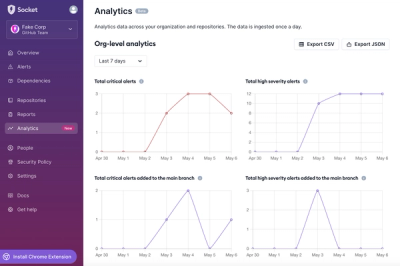=====
freud
|Citing freud|
|PyPI|
|conda-forge|
|ReadTheDocs|
|Binder|
|GitHub-Stars|
.. |Citing freud| image:: https://img.shields.io/badge/cite-freud-informational.svg
:target: https://freud.readthedocs.io/en/stable/reference/citing.html
.. |PyPI| image:: https://img.shields.io/pypi/v/freud-analysis.svg
:target: https://pypi.org/project/freud-analysis/
.. |conda-forge| image:: https://img.shields.io/conda/vn/conda-forge/freud.svg
:target: https://anaconda.org/conda-forge/freud
.. |ReadTheDocs| image:: https://readthedocs.org/projects/freud/badge/?version=latest
:target: https://freud.readthedocs.io/en/latest/?badge=latest
.. |Binder| image:: https://mybinder.org/badge_logo.svg
:target: https://mybinder.org/v2/gh/glotzerlab/freud-examples/master?filepath=index.ipynb
.. |GitHub-Stars| image:: https://img.shields.io/github/stars/glotzerlab/freud.svg?style=social
:target: https://github.com/glotzerlab/freud
Overview
The freud Python library provides a simple, flexible, powerful set of tools
for analyzing trajectories obtained from molecular dynamics or Monte Carlo
simulations. High performance, parallelized C++ is used to compute standard
tools such as radial distribution functions, correlation functions, order
parameters, and clusters, as well as original analysis methods including
potentials of mean force and torque (PMFTs) and local environment matching. The
freud library supports
many input formats <https://freud.readthedocs.io/en/stable/topics/datainputs.html>__
and outputs NumPy arrays <https://numpy.org/>__, enabling integration
with the scientific Python ecosystem for many typical materials science
workflows.
Resources
Reference Documentation <https://freud.readthedocs.io/>__: Examples, tutorials, topic guides, and package Python APIs.Installation Guide <https://freud.readthedocs.io/en/stable/gettingstarted/installation.html>__: Instructions for installing and compiling freud.freud discussion board <https://github.com/glotzerlab/freud/discussions/>__: Ask the freud user community for help.GitHub repository <https://github.com/glotzerlab/freud>__: Download the freud source code.Issue tracker <https://github.com/glotzerlab/freud/issues>__: Report issues or request features.
Related Tools
HOOMD-blue <https://hoomd-blue.readthedocs.io/>__: Perform MD / MC simulations that can be analyzed with freud.signac <https://signac.io/>__: Manage your workflow with signac.
Citation
When using freud to process data for publication, please use this citation <https://freud.readthedocs.io/en/stable/reference/citing.html>__.
Installation
freud is available on conda-forge_ for the linux-64, osx-64, osx-arm64 and win-64
architectures. Install with:
.. code:: bash
mamba install freud
freud is also available on PyPI_:
.. code:: bash
python3 -m pip install freud-analysis
.. _conda-forge: https://conda-forge.org/
.. _PyPI: https://pypi.org/
If you need more detailed information or wish to install freud from source, please refer to the
Installation Guide <https://freud.readthedocs.io/en/stable/gettingstarted/installation.html>__ to
compile freud from source.
Examples
The freud library is called using Python scripts. Many core features are
demonstrated in the freud documentation <https://freud.readthedocs.io/en/stable/examples.html>. The examples come in
the form of Jupyter notebooks, which can also be downloaded from the freud examples repository <https://github.com/glotzerlab/freud-examples> or
launched interactively on Binder <https://mybinder.org/v2/gh/glotzerlab/freud-examples/master?filepath=index.ipynb>.
Below is a sample script that computes the radial distribution function for a
simulation run with HOOMD-blue <https://hoomd-blue.readthedocs.io/>__ and
saved into a GSD file <https://gsd.readthedocs.io/>.
.. code:: python
import freud
import gsd.hoomd
Create a freud compute object (RDF is the canonical example)
rdf = freud.density.RDF(bins=50, r_max=5)
Load a GSD trajectory (see docs for other formats)
traj = gsd.hoomd.open('trajectory.gsd', 'rb')
for frame in traj:
rdf.compute(system=frame, reset=False)
Get bin centers, RDF data from attributes
r = rdf.bin_centers
y = rdf.rdf
Support and Contribution
Please visit our repository on GitHub <https://github.com/glotzerlab/freud>__ for the library source code.
Any issues or bugs may be reported at our issue tracker <https://github.com/glotzerlab/freud/issues>, while questions and discussion can be directed to our discussion board <https://github.com/glotzerlab/freud/discussions/>.
All contributions to freud are welcomed via pull requests!



